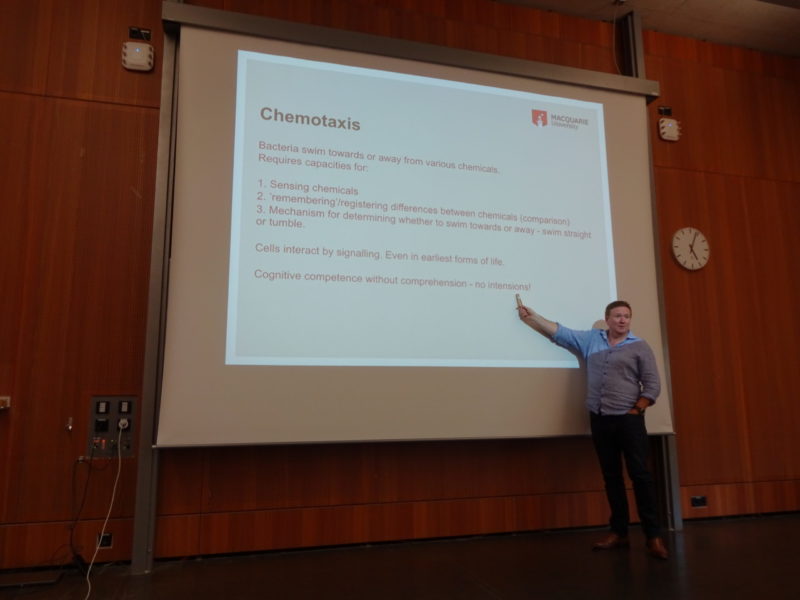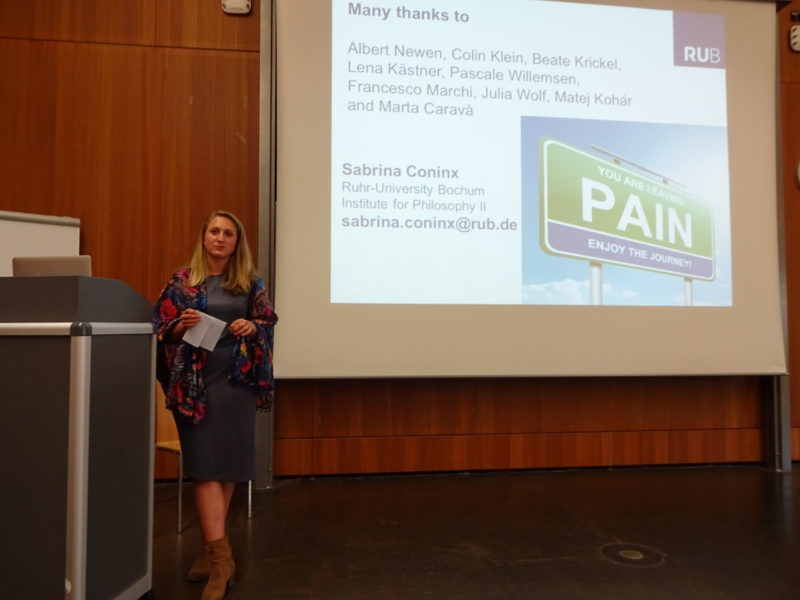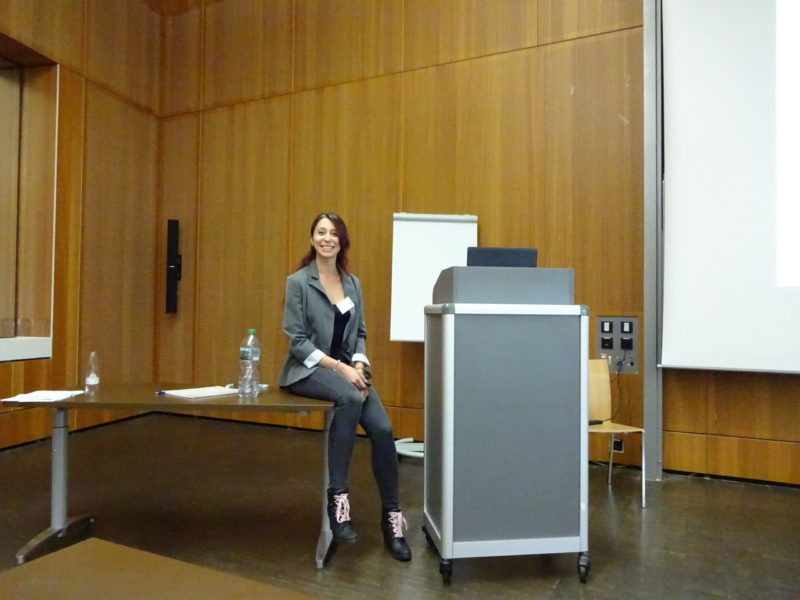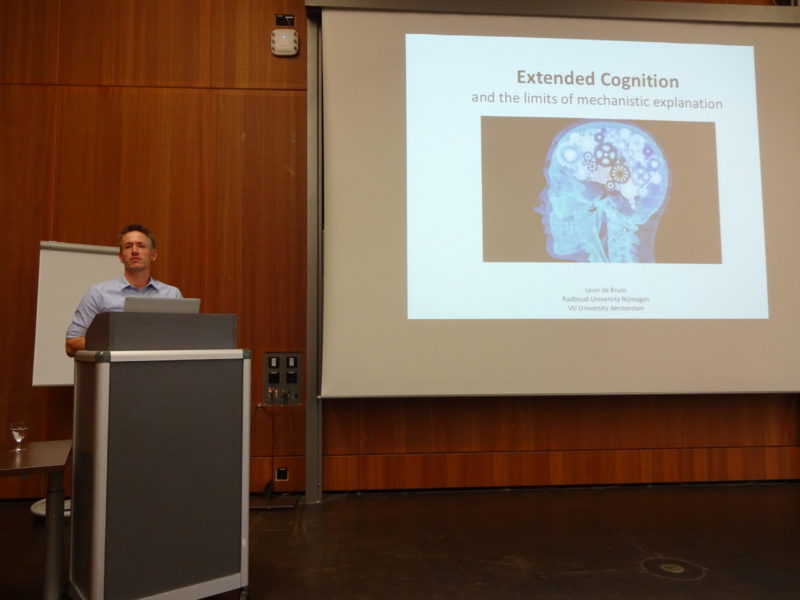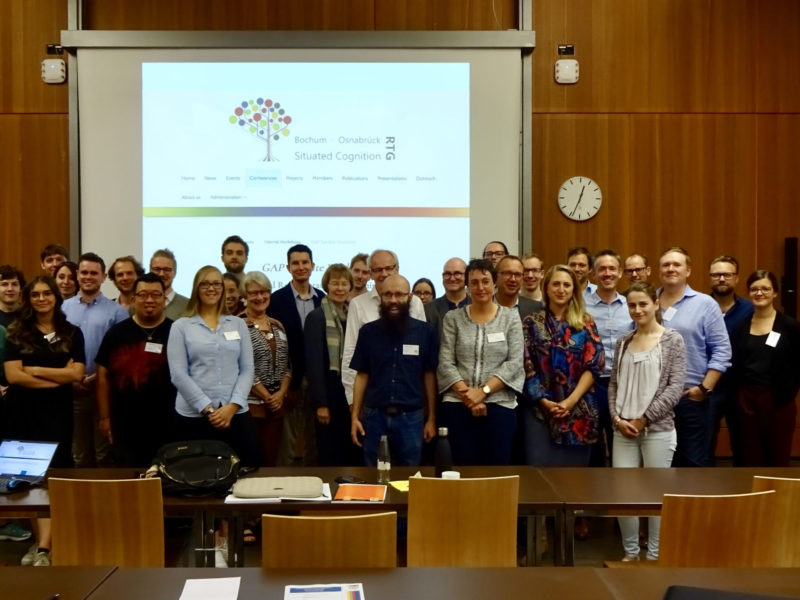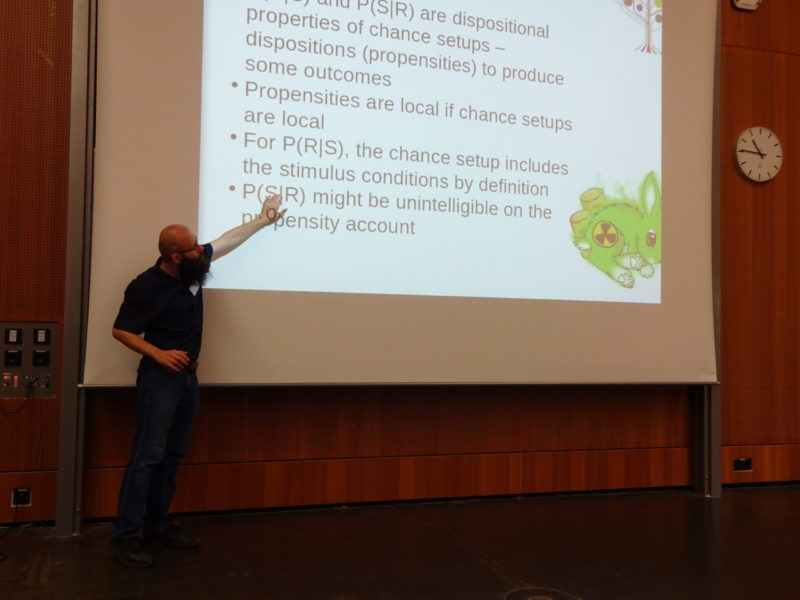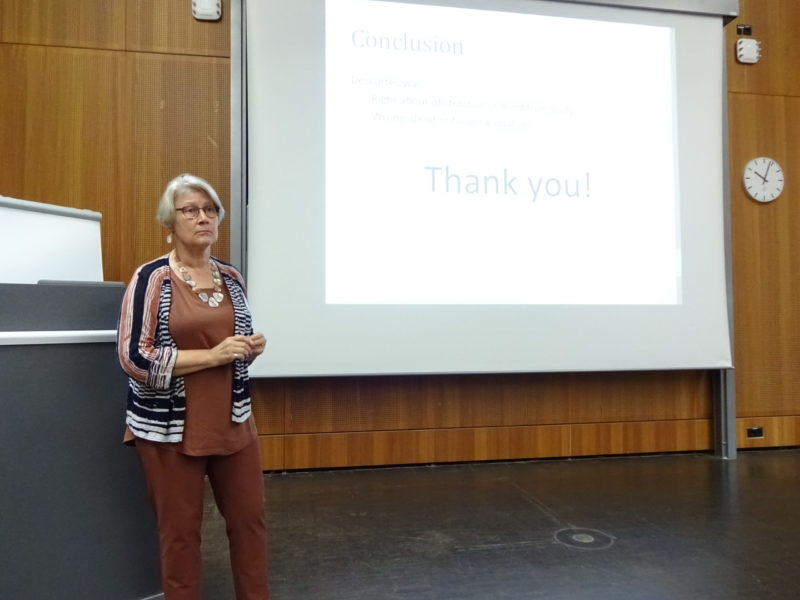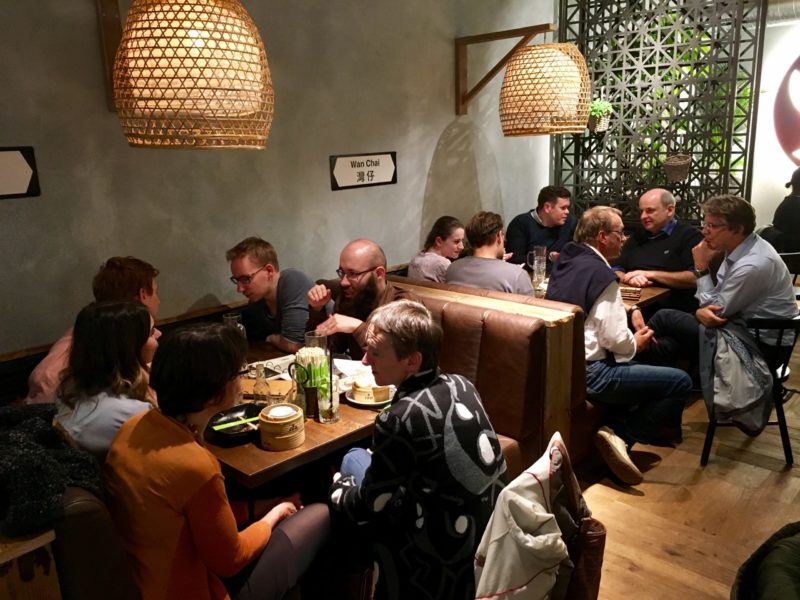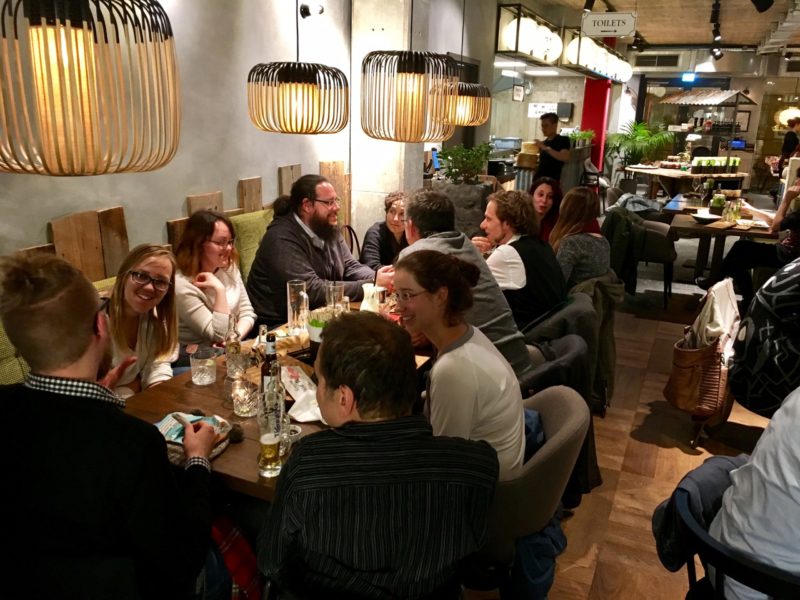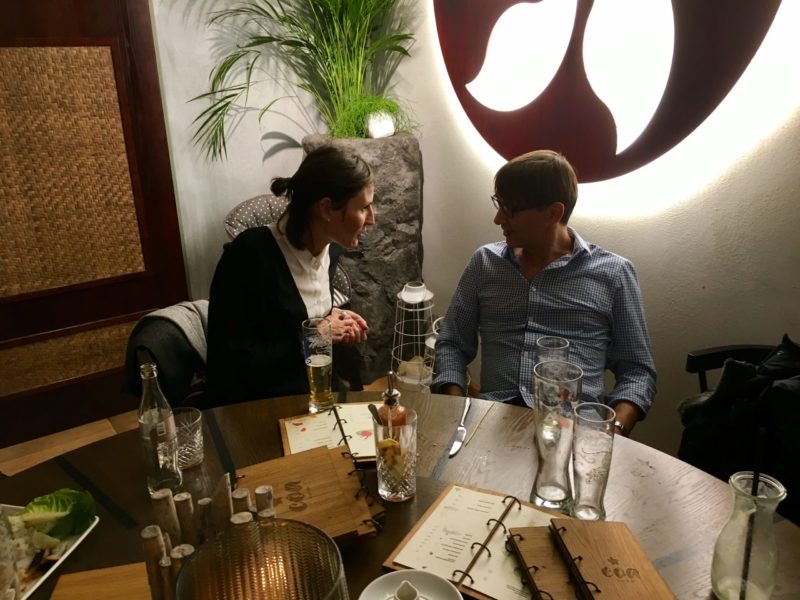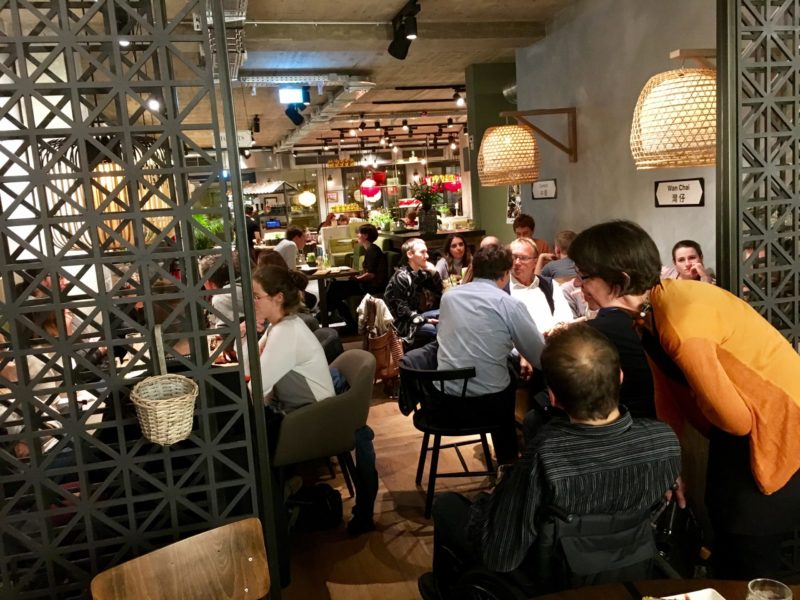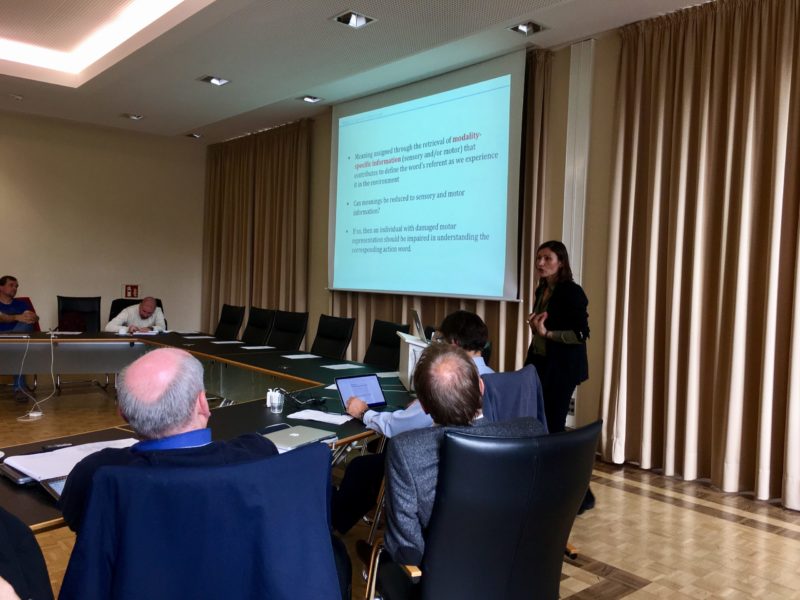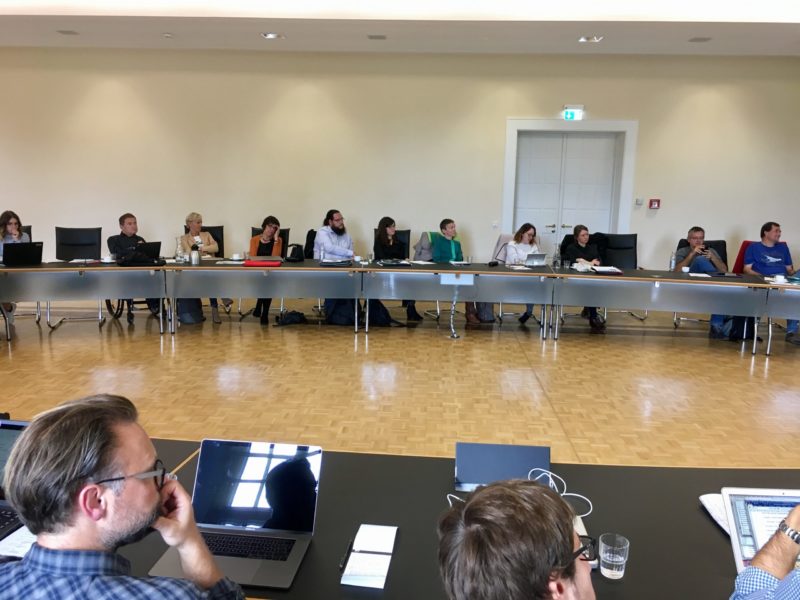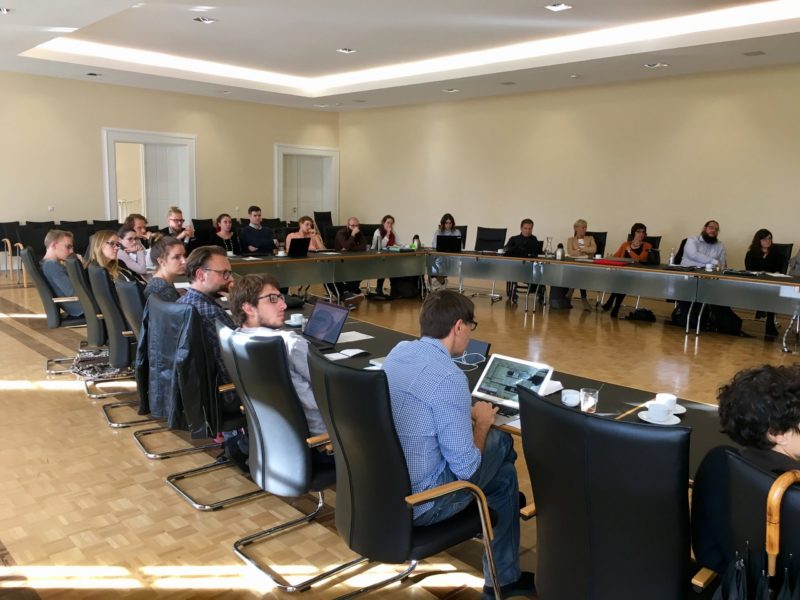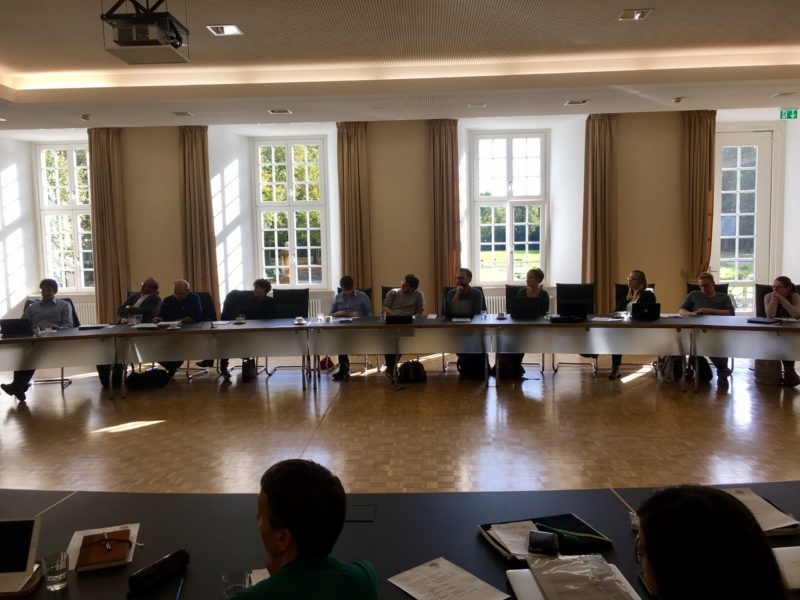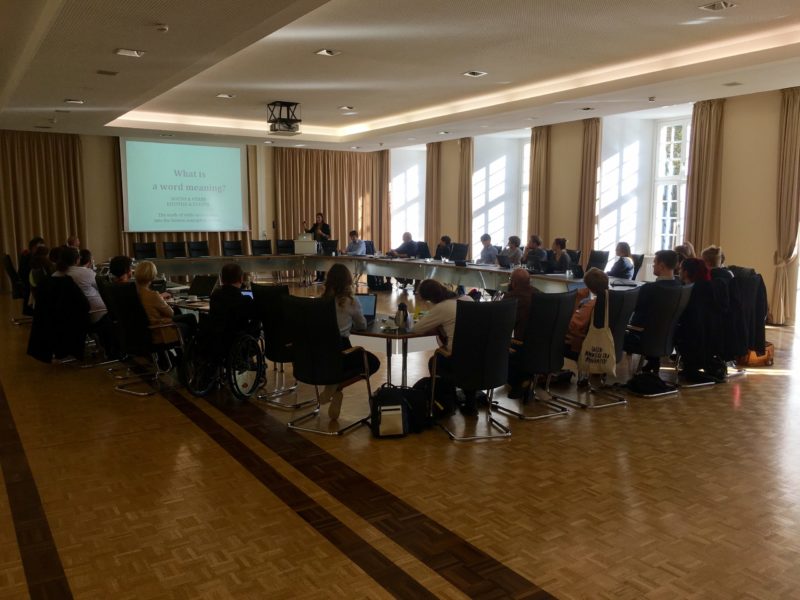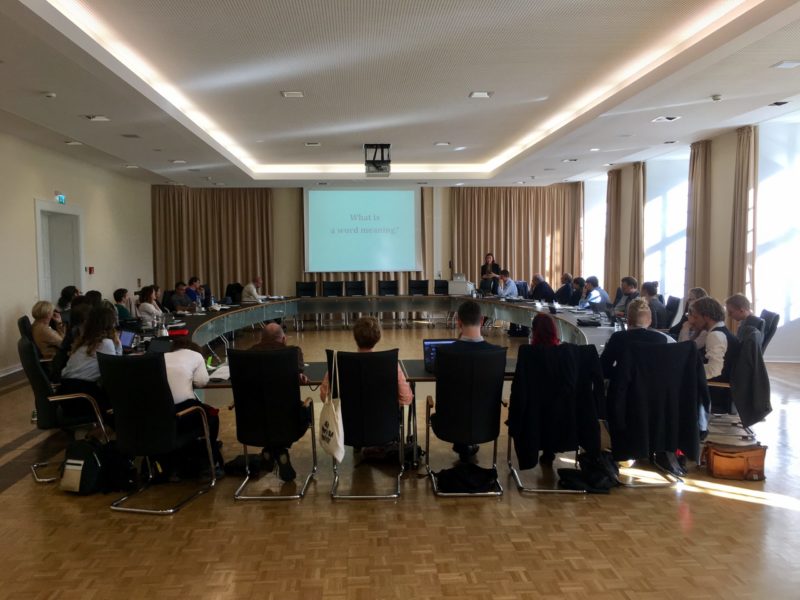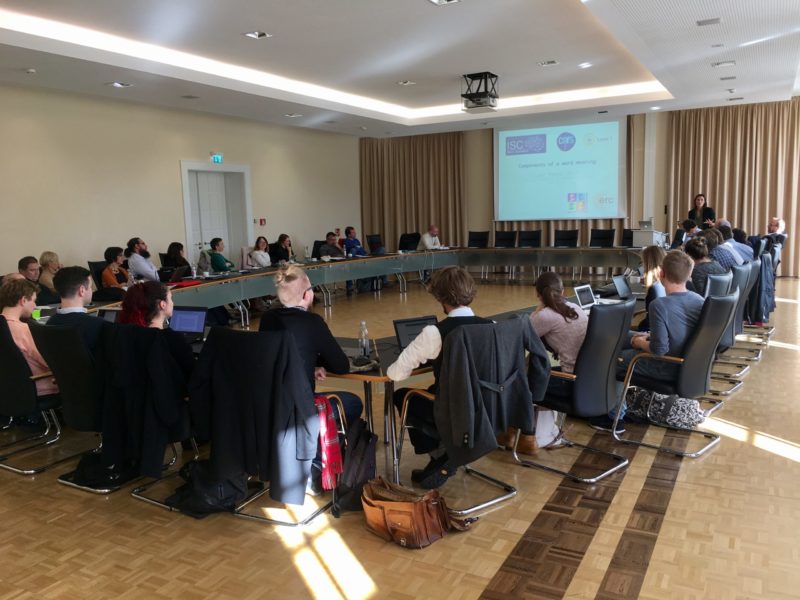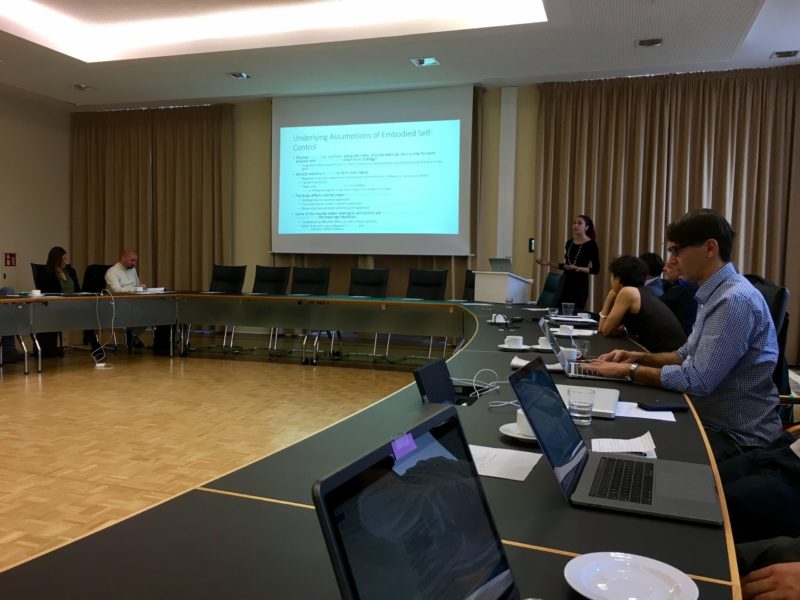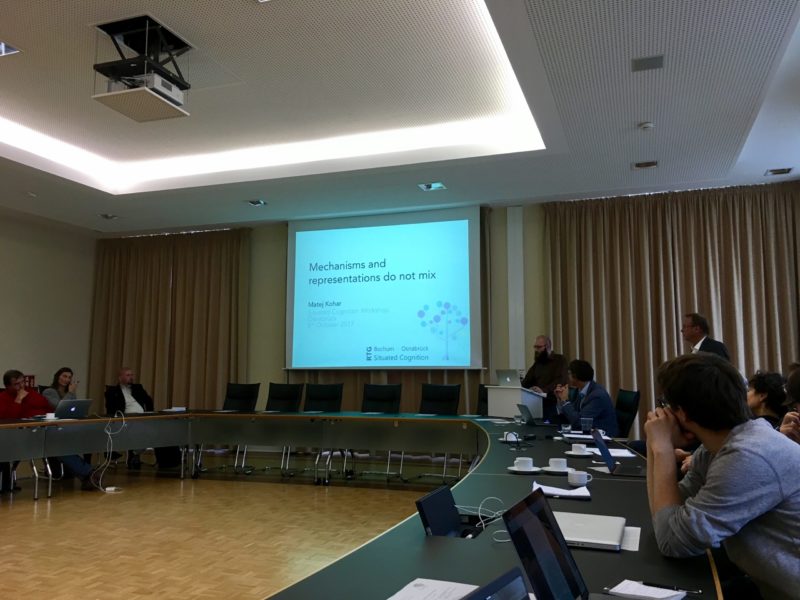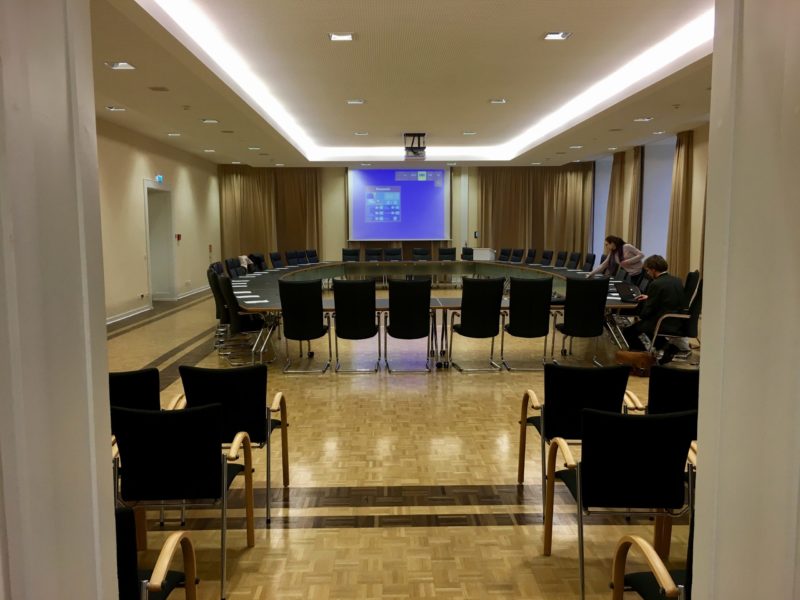
Conferences & External Workshops 2017 – 2020
Summer School 2019
Recent Developments in Situated Cognition
– Empirical and Philosophical Investigations –
23. – 26.09.2019, Ruhr-University Bochum, Zemos
Download the full summer school programme here
The summer school aims to provide state-of-the-art scientific and research-oriented training on recent developments in situated approaches to cognition in various research fields such as philosophy, psychology, and neuroscience. We invite highly promising doctoral students and early postdoctoral researchers from European and overseas universities and research institutions. The open and constructive setting provides an opportunity for networking, which is complemented by intensive discussions and interactions with leading experts and fellow students.
Keynote speakers (alphabetical order)
Olaf Blanke (Neuroscience, EPFL Lausanne, Switzerland)
Shaun Gallagher (Philosophy, University of Memphis, USA)
Autumn Hostetter (Psychology, Kalamazoo College, USA)
Fiona Macpherson (Philosophy, University of Glasgow, Scotland)
Gabriela Markova (Psychology, Universität Wien, Austria)
Nicholas Shea (Philosophy, King’s College London, UK)
Thomas Staufenbiel (Psychology, Universität Osnabrück, Germany)
Further speakers (alphabetical order)
Peter Brössel
Onur Güntürkün
Mark James
Matej Kohár
Peter König
Beate Krickel
Jutta L. Mueller
Kathryn Nave
Julian Packheiser
Michael Pauen
Sabine Seehagen
Ric Sims
Basil Wahn
Sven Walter
Organized by members of the RTG “Situated Cognition”: Albert Newen (Bochum), Beate Krickel (Bochum), Achim Stephan (Osnabrück), Peter König (Osnabrück)
Contact: rtg-situatedcognition@rub.de
GAP.10 Satellite Workshop
Mental Representation, Mechanistic Explanation & Situated Cognition
21.09.2018, University of Cologne (Seminargebäude, S01)
The workshop brings together young researchers from the DFG-funded Graduiertenkolleg on “Situated Cognition” and experts working on issues concerning 4-E cognition. We will tackle central meta-questions as well as discuss core applications of 4E-approaches. Meta-questions that will be addressed in the workshop concern the nature and role of mental representations in cognitive processing, the causation/constitution distinction in accounts of extended cognition, and the compatibility of extended cognition and mechanistic explanation. As application cases, we will focus on the relevance of situatedness for social and moral cognition.
| 09:15-09:20 | ⠀⠀ | ⠀⠀ | Introduction | |
| ⠀ | ||||
| 09:20-10:20 | Keynote talk | Louise Antony (Amherst): “Cartesian Materialism” | ||
| ⠀ | ||||
| 10:20-11:00 | Matej Kohár (Bochum): “The role of covariance in mechanistic explanation of cognition” | |||
| ⠀ | ||||
| 11:00-11:30 | Coffee | |||
| ⠀ | ||||
| 11:30-12:30 | Keynote talk | Beate Krickel (Bochum): “The Causation/Constitution Distinction: Can the New Mechanistic Approach help?” | ||
| ⠀ | ||||
| 12:30-14:00 | Lunch | |||
| ⠀ | ||||
| 14:00-15:00 | Keynote talk | Leon de Bruin (Nijmegen, Amsterdam): “Extended Cognition and the Limits of Mechanistic Explanation” | ||
| ⠀ | ||||
| 15:00-15:40 | Jumana Morciglio (Osnabrück): “Putting the Mind Back Together: Reconceiving the Status of Emotions in Self-Control” | |||
| ⠀ | ||||
| 15:40-16:10 | Coffee | |||
| ⠀ | ||||
| 16:10-16:50 | Sabrina Coninx (Bochum): “Pain: Why representationalists cannot account for it” | |||
| ⠀ | ||||
| 16:50-17:50 | Keynote talk | Richard Menary (Maquarie): “Enculturating Cognition: From Simple Minds to Talking Heads and Back” |
Participation is free but space is limited. Please send us an email to register: rtg-situatedcognition@rub.de
For further information on GAP10, including directions, visit www.gap10.de.
The workshop has been a success! Here are some pictures:
Second Conference of the RTG
Situated Approaches to Social Understanding, Emotion, and Meaning
22. – 23.06.2018, Ruhr-University Bochum (Room GA 04/187)
Keynote speakers:
Elizabeth S. Spelke (Psychology, Harvard)
Giovanna Colombetti (Philosophy, Exeter)
Barbara Kaup (Linguistics, Tübingen)
Further speakers:
Alexander Bergs (Osnabrück)
Judith Martens (Bochum)
Albert Newen (Bochum)
Achim Stephan (Osnabrück)
Markus Werning (Bochum)
Call for papers & posters (extended deadline)
We invite the contribution of papers and posters on the topics of situated approaches to social understanding, emotion, and meaning, and on the topic of situated cognition in general.
Submissions for paper presentations should consist of an abstract with no more than 1000 words. Submissions for a poster presentation should consist of either an abstract with no more than 600 words or a poster.
Please submit your paper, poster or abstract in EasyChair, indicating in the submission title if it is meant to be a poster presentation (note “poster only”), a paper (note “paper only”) or a paper that might also be considered for a poster presentation (note “paper or poster” – Submitted papers thus marked may be considered also for poster presentations should the maximum number of papers have already been accepted).
The extended deadline for submissions is 23rd May 2018.
Authors of accepted papers or posters are eligible for financial travel support. On the basis of actual expenses and original receipts, travel reimbursements can be claimed after the conference: up to 100 Eur by participants from Germany, up to 150 Eur by participants from other European countries and up to 200 Eur by participants from Non-EU countries (overseas).
In order to register for the conference, please send an email to rtg-situatedcognition@rub.de
Travel information for Bochum visitors
First Conference of the RTG
Linguistic Understanding and Emotion
05. – 06.10.2017, University of Osnabrück

On the 5th and 6th of October 2017, the first conference of the DFG research training group (RTG) “Situated Cognition” was held in Osnabrück.
The first day was opened by two PhD students, who reported their progressing work and afterwards were given feedback by the audience. Matej Koher presented a paper where he suggests that explanations in cognitive science have wrongfully combined mechanistic decomposition with the representational theory of mind. He argues that these two accounts are incompatible. Afterwards Jumana Morciglio showed her advancements in her integrative theory of self-control and embodiment extending the traditional “cognitivist” view. Especially chronically weak-willed agents could profit including the body to self-control strategies, which are easier to train than habits. For example embodying certain emotions (e.g. pride) may provide a cognitive short cut to help people stick to their better judgements.

After two talks, which were strongly embedded in the situated cognition framework, Liuba Papeo from the Institute of Cogntive Sciences at the Université de Lyon presented her empirical findings as a counter opinion, arguing for a weaker notion of embodiment. Based on her research with brain damaged patients, she and her colleagues found evidence that patients with motor dysfunction are still able to comprehend the meaning of an action word. This effect cannot be explained by situated approaches and constitutes a problem affecting the core ideas of this framework. These results should find consideration in our underlying paradigm. Her talk was commented by the PhD student Samuel Cosper, who summarised her presented findings, emphasising that the motor cortex is sensitive and that the semantic representation may not reside within the cortex itself, but rather that the cortex itself serves a mediated/secondary function.

After fruitful discussions based on conceptual opposing views of the different talks during the day, debates were continued at the more relaxed atmosphere of the Asian fusion restaurant coa in Osnabrück.
On the second day, continuing with the theme of emotions, Andres Sanchez Guerrero, an associated postdoc of the RTG from the Münster University Hospital (UKM) introduced an account of situated dispositional structures in early childhood. The aim of his project is to combine approaches of the psychodynamic structure with the paradigm of developmental psychology and the situated cognition theory into one framework, bringing it back to clinical practice. Developing a new theory including the first years of life he wants to expand the age range of the OPD-CA-2 (Operationalized Psychodynamic Diagnosis in Childhood and Adolescence) to infancy as well.
Subsequently, the PhD student Elmarie Venter introduced her work on predictive coding, perceptual content and the experiencing subject, exploring the accuracy conditions for a model of the world in the predictive coding framework. She proposed that any analysis of perception in terms of predictive coding will remain incomplete if the self-as-subject is not explained.
Andrea Scarantino, from Georgia State University, was invited for a talk about his motivational theory of emotion, which holds that emotions are essentially irruptive and prioritized impulses to behave. He argued that emotions can help self-control by virtue of how they motivate, feel and evaluate the self and their contribution to setting and shielding distal goals from proximal ones mirrors cognitive habits of self-control. The PhD student Lasse Bergmann summarised this talk and raised the question whether emotions really can be brought into line with goals as suggested by Scarantino.
The PhD student Julian Packheiser started the neurophysiological block arguing that single-unit recordings provide insights into the mechanism of how cognition is organized and realized. Based on first data he concluded that cognitive processes are most likely not structured in a spatially and temporally linear pattern, but rather achieved through feedback processing and neural coupling between perception and action depending on task complexity.
Last but not least Onur Güntürkün from the Ruhr-University Bochum presented the reasons why cognitive performances of birds were underestimated for more than 100 years. Birds, especially pigeons, crows and parrots, are able to act on the same level of cognition as mammals although the structure of the brain is fundamentally different, as birds do not have a cortex. This is possible due to more tightly packed neuronal areas in the brain. He closed his talk stating that different organised brains can produce the same cognitive output.
All together this conference was a great opportunity and inspiration for the continuing work of the RTG. We are looking forward to continue with these stimulating discussions in the upcoming conference on the 15th of December 2017, hosted by the Ruhr-University Bochum, where the remaining PhD students present their projects.
More pictures:
